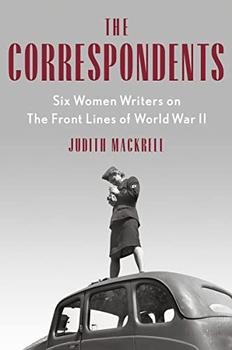Summary | Excerpt | Reviews | Beyond the book | Read-Alikes | Genres & Themes | Author Bio

My Journey Behind the Lines of Jihad
by Souad Mekhennet"I was told to come alone. I was not to carry any identification, and would have to leave my cell phone, audio recorder, watch, and purse at my hotel..."
For her whole life, Souad Mekhennet, a reporter for The Washington Post who was born and educated in Germany, has had to balance the two sides of her upbringing – Muslim and Western. She has also sought to provide a mediating voice between these cultures, which too often misunderstand each other.
In this compelling and evocative memoir, we accompany Mekhennet as she journeys behind the lines of jihad, starting in the German neighborhoods where the 9/11 plotters were radicalized and the Iraqi neighborhoods where Sunnis and Shia turned against one another, and culminating on the Turkish/Syrian border region where ISIS is a daily presence. In her travels across the Middle East and North Africa, she documents her chilling run-ins with various intelligence services and shows why the Arab Spring never lived up to its promise. She then returns to Europe, first in London, where she uncovers the identity of the notorious ISIS executioner "Jihadi John," and then in France, Belgium, and her native Germany, where terror has come to the heart of Western civilization.
Mekhennet's background has given her unique access to some of the world's most wanted men, who generally refuse to speak to Western journalists. She is not afraid to face personal danger to reach out to individuals in the inner circles of Al Qaeda, the Taliban, ISIS, and their affiliates; when she is told to come alone to an interview, she never knows what awaits at her destination.
Souad Mekhennet is an ideal guide to introduce us to the human beings behind the ominous headlines, as she shares her transformative journey with us. Hers is a story you will not soon forget.
I was surprised at how balanced Mekhennet's opinions are throughout. While she blames Western attitudes toward — and actions in — predominantly Islamic countries as largely responsible for the rise of jihadism across the Arab world, she also criticizes Muslims who promote violence against Christians and practitioners of a different sect of Islam. Mekhennet points out that there's an essential rift between the Western understanding of the concept of democracy, and how those from other cultures might view it. Where we may see a system that guarantees protection to all (or tries to, at least), the democratic movement in Egypt or Syria seems to be more about majority rule, where the winning party uses their mandate to justify their blatant oppression of the losers - generally women and minorities.
I Was Told to Come Alone works on many levels. Mekhennet's life and experiences are fascinating in their own right, but her take on the current political and social issues facing our world is enlightening. While her condemnation of Western attitudes may alienate some readers, most will find that this book gives them much to think about and it may possibly provide new insight into the problems we face as we seek peace with the Islamic world...continued
Full Review
 (748 words)
(748 words)
(Reviewed by Kim Kovacs).
Souad Mekhennet is one of many women journalists who have entered dangerous situations to try to inform the world about conditions in a war zone. A few of the most influential and best-known, now deceased, are listed below.
 Kathleen "Kit" Coleman (1864-1915) covered the Spanish-American War for the Toronto Mail in 1898. The Ireland-born mother of two had been hired by the paper in 1890 in response to Canada's emerging "New Woman" movement, and was originally tasked with writing columns related to things that might potentially interest the paper's female readership: fashion, housekeeping, advice, etc. Coleman's outspoken writing quickly attracted a wide audience and she was given more responsibility, tackling everything from politics to...
Kathleen "Kit" Coleman (1864-1915) covered the Spanish-American War for the Toronto Mail in 1898. The Ireland-born mother of two had been hired by the paper in 1890 in response to Canada's emerging "New Woman" movement, and was originally tasked with writing columns related to things that might potentially interest the paper's female readership: fashion, housekeeping, advice, etc. Coleman's outspoken writing quickly attracted a wide audience and she was given more responsibility, tackling everything from politics to...

If you liked I Was Told to Come Alone, try these:

Looking at Women Looking at War
by Victoria Amelina
Published 2025
Destined to be a classic, a poet's powerful look at the courage of resistance.

by Judith Mackrell
Published 2023
The riveting, untold history of a group of heroic women reporters who revolutionized the narrative of World War II - from Martha Gellhorn, who out-scooped her husband, Ernest Hemingway, to Lee Miller, a Vogue cover model turned war correspondent.
If there is anything more dangerous to the life of the mind than having no independent commitment to ideas...
Click Here to find out who said this, as well as discovering other famous literary quotes!